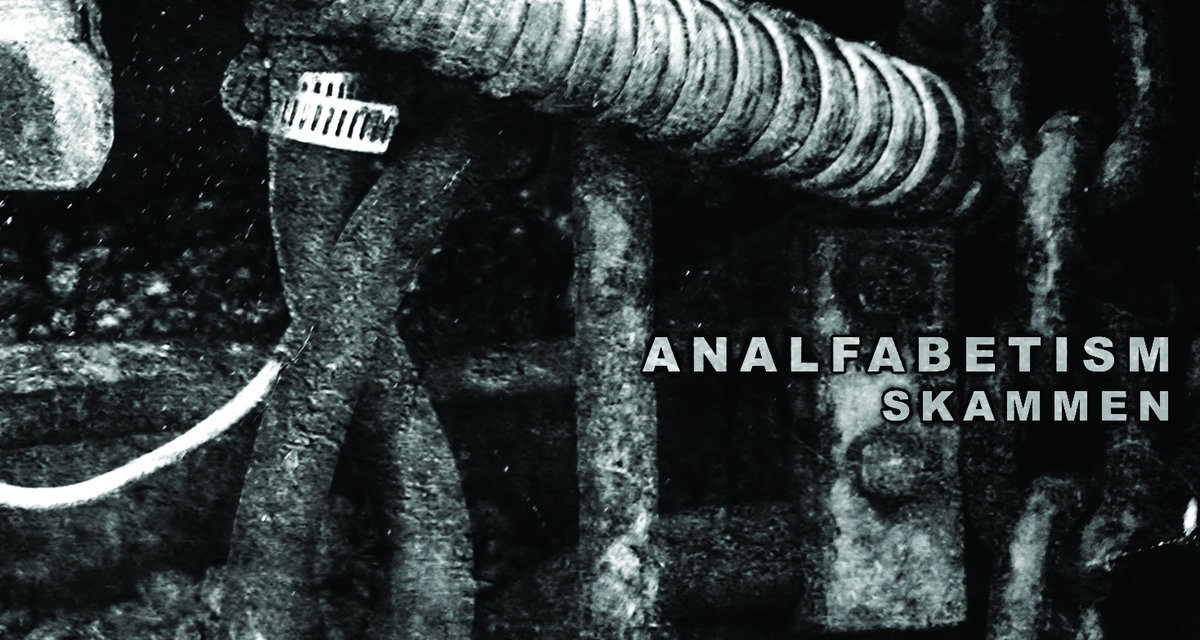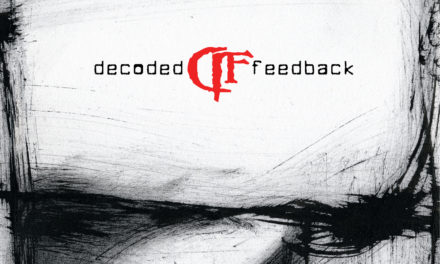Analfabetism
Skammen
Malignant Records
The previous two times I’ve discussed Analfabetism’s records on this site I was fixated on how the solo project of Fredrik Djurfelt (perhaps most known to readers as one half of Severe Illusion) managed to triangulate classic industrial, noise, and death industrial in a way which prompted some interesting questions about the origins and motives of each of those genres. That interesting balance is certainly still on display on third record Skammen, but it’s the album’s focus on looping sounds that produces a sense of disquiet.
Time and again, tracks on Skammen introduce individual, often discrete chunks of pure shuddering noise and, after a beat, loops them again, and again, and again. While obviously carefully sculpted and textured by Djurfelt, few have any apparent rhythm or meter in isolation; it’s only in their repeated appearance that the mind begins to look for patterns in the chaos, to anticipate each squelch or thump. That intractability sits in sharp contrast to the notions of chaos commonly imagined with material this noisy, and the familiarity of a particular passage after hearing it four or five times sits ill at ease with the seemingly unmusical nature of such violent sound. Like a horrific memory one can’t help but replay, the foreknowledge of its return produces a second sense of horror.
That abrasive and unrelenting quality only makes the opening half of mid-record cut “Långt om länge vi dör ihjäl” all the more unnerving. Simple dips and sonar-like tones pass over low sine waves which are almost inaudible. It’s a sedate and ostensibly calm period of relief, albeit one interrupted at a couple of points by the more familiar mechanical stutters and noises, but the inescapable loops of the more abrasive tracks which precede it can’t help but shape one’s reception of it. Those ambient passages are just as insistently repetitive as their more violent counterparts, bringing up a host of questions: can the looping of seemingly “ambient” music be monomaniacal and punishing in its own way? Is the seeming inevitability of a certain sound welcome or horrific, regardless of its timbre or volume?
These ‘how many devils can dance on the head of a resistor’ type questions might be sophistry, but like I alluded to at the beginning, Analfabetism’s music provokes some structural thought about its own make-up as well as the more obvious moods of dread and inevitability. Terms like “contemplative” are often tossed about with regards to dark ambient (a genre the second half of Skammen certainly is informed by) to describe the reverie it can produce, but the inward pull of these tracks’ repetitions acts like a mental gravity well, constantly drawing the mind’s eye back to the pure, malevolent noise sitting at the center.






